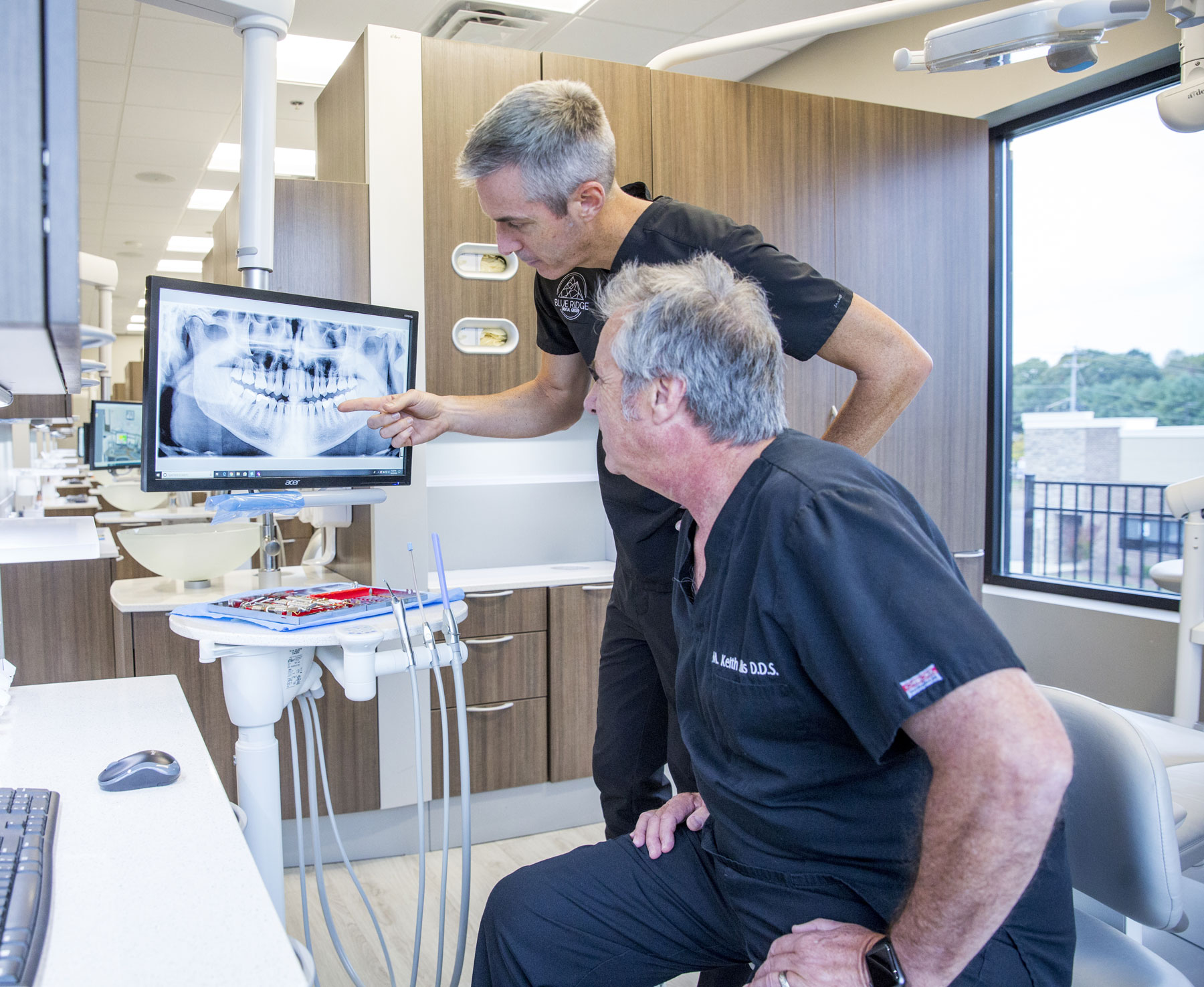
Dental Implants
Restore Your Smile
Dental implants are a reliable and effective solution for replacing missing teeth. Whether you need to replace a single tooth or multiple teeth, implants offer a permanent solution that both looks and functions like natural teeth.
A dental implant acts as an artificial root, forming a base for securing a prosthetic tooth. This adaptable option can replace a single tooth, multiple teeth, or support larger prosthetics such as dentures, customized to suit each person’s unique needs and oral health.
In addition to replacing teeth, implants also help stabilize bone density, which can prevent bone loss. This added stability offers improved long-term support, functionality, and aesthetic benefits. Implants are a preferred choice over traditional tooth replacement methods because they do not require alteration of neighboring teeth.
How Does the Procedure Work?
The first step in the dental implant process is a consultation with one of our dentists, who will inspect the area in the mouth where the implant will be placed. Next, an assessement is done to see if any tooth extractions and the type of bone graft required. These initial procedures are completed first to allow the patient several months to heal and to ensure that the bone is healthy and sufficient for the future implant.
After this assessment, the dental implant is surgically inserted into the bone, and a healing cap is placed on top to facilitate the healing process. Regular check-ups are crucial to monitor the healing properly and to prevent any infections at the implant site.
Are there options with this procedure?
Two common types of dental implants are endosteal implants and all-on-4 implants. Endosteal implants, the more frequently chosen option, involve placing a titanium rod into the jawbone, which is then fitted with a supporting post to secure a dental crown or bridge.
All-on-4 implants are a revolutionary system that supports an entire upper or lower set of dentures with just four strategically placed implants. This configuration enhances stability for the prosthetic teeth. The use of only four implants helps speed up recovery for patients and reduces the likelihood of complications that could arise from implant failures.
What are the benefits of Dental Implants?
Tooth loss can create several challenges, notably in chewing and speaking clearly. Without treatment, tooth loss can lead to serious issues like shifting teeth, jawbone deterioration, loss of facial structure, and bite imbalances. These problems develop over time because there’s no root system to support bone health and maintain alignment. Dental implants serve as an artificial root system, ensuring stability and preserving the alignment of the remaining teeth.
Dental implants not only address immediate difficulties but also prevent long-term complications associated with tooth loss. They are the most effective solution for replacing lost teeth, providing an artificial root system that supports prosthetic teeth and offers a natural feel.
Do you have questions about Invisalign?
We are happy to discuss questions you may have about Invisalign or other orthodontic procedures.
